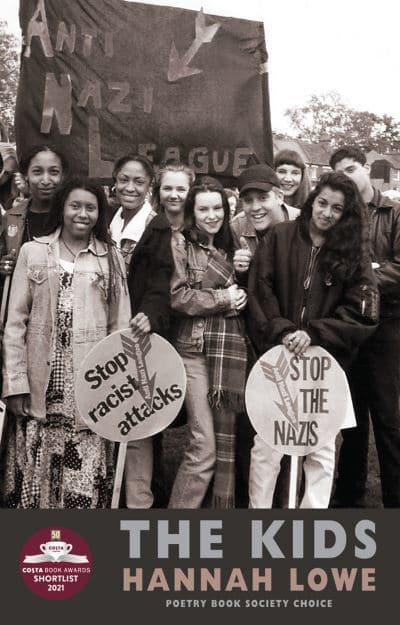The Kids (Shortlisted, TS Eliot Prize 2021)
But the kids I taught, who came to me at the edge
of childhood - was it really, then, too late?
(‘Balloons’)
There’s an old adage that our pupils teach us far more than they are taught. The former teacher in me doesn’t quarrel with that, and nor, apparently, does Hannah Lowe. Drawn from her own ten years’ teaching in ‘an inner-city London sixth form’, the book erupts with classroom vibrancy, without confining itself to in-school tales. Every teacher will recognise moments (big moments) of being confronted by your own past as a child or pupil, where uninvited, your own childhood and adolescence invades your practice. In turn, your charges have lives which sometimes connect, sometimes sever, the beyond teaching time. And should you have children, your chalk-face experiences will also continue to haunt. The Kids is an extraordinary testament to the profession’s very personal dynamics.
and from her hands, tight-knitted hands, the notes
fell out, like gloves unravelling their wool.
(‘Bethena’)
Divided into three sections, the collection addresses in turn the classroom’s more direct provocations, the poet’s personal youthful challenges (both in school and beyond), and her observations of her own young son’s development. Throughout, she threads stories of life’s baggage not readily deposited at the school gates. Her relationship with her parents features strongly, and there are parallels with Raymond Antrobus’ work in her acutely courageous examination. The collection moves from where her superb Chick (Bloodaxe, 2013) left us, with the death of her Jamaican-Chinese father. That sense of never being quite adult until our parents are gone is potent.
Written in sonnets, the cover describes the form as being ‘re-energised, becoming a classroom, a memory box and even a mind itself.’ I have a slight hesitation in agreeing fully, though the poems do all this and more, and I quibble a bit with Dalgit Nagra’s pronouncement that ‘Lowe makes the sonnet exciting for our age’. Undeniably, these are very exciting poems, but the sonnet has been punching well above its 14 line weight for centuries, and it continues to do so; it shows no evidence of decrepitude. It’s precisely its very vigour and versatility which has made the form the perfect channel for Lowe here. There’s the tension, sometimes taut to the edge of strangulation in certain stanzaic arrangements (how perfect to describe the horror of being kettled in ‘Welling 1993′); the volta’s daring potential; the possibility of fragmentation into couplets where required; the expectations of rhyme, thwarted or otherwise, and other far from decorative formal arrangements. Underpinning that, as always, the sonnet delivers love, with its ability to contain extremes effectively. Lowe’s deceptively deft employment of accessible language, and her sharp way with enjambment flex perfectly in the form’s structure. ‘There is no volta here,’sits in ‘The Art of Teaching II’, with perfect irony.
From her ‘Sonnet for the Punched Pocket’ with its ‘loud//clack-snap of steel’, ‘flattened, silenced, trapped[.]’, which has both a Sharon Olds’ Ode flavour and a metaphysical tang, to the painful indignity known to every teacher when faced with a row of knowing girls and their brandished trip-wire (‘Pepys’) through, to the tilting balance of how Lowe’s own mixed race heritage reaches her pupils, to the Rosies, Vlads, Janines and more, The Kids never misses its mark. In her perhaps expected examination of the intersectionality encountered in education, she does not flinch; ‘The Only English Kid’ examines what privilege might really be for ‘poor Johnny/ in his spotless Reeboks and blue Fred Perry’. That makes a pretty hard-edged contrast with her own teenage vulnerability as ‘oi pick-n-mixer!/ White wog! But I had skin the kids forgot’ (‘The Only Black Girl’).
Chick was a hard act to follow. In this painfully aware, complex and very dynamic collection, Hannah Lowe has more than succeeded. Anyone entering teaching would do well to read it. As would everyone else.
i.m. of Hannah McInally (1997-2021) who was at the beginning of her own teaching adventures.
Beth McDonough


Leave a Reply